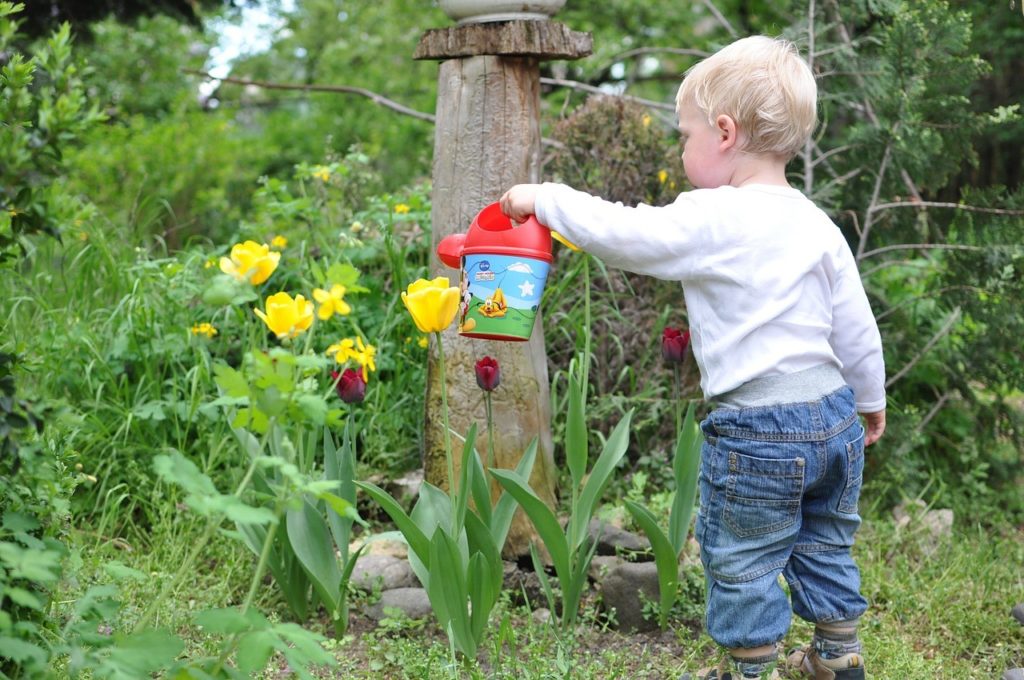
It can’t be denied that our lifestyles affect the children of tomorrow. The ways we manage waste, and our concerns for the environment have a big impact on the perceptions of the next generation. It’s important to show our kids that helping the environment can, and should, be part of our daily routines. Knowing what we can do is a great start. So here are 8 ways you can raise earth-friendly kids.
1.) Recycling
One of the easiest things a family can do when raising eco-friendly kids is teaching them to recycle. Whether in the home environment or out somewhere like the local transfer station, seeing recycling in action is good for learning. Bottles, plastics, compost — the more kids know what to recycle, the more likely they are to do it.
2.) Gardening
Having a green thumb is a great way to help kids become more environmentally conscious. It also helps them appreciate plant-life more. Beyond appreciation for the environment, gardening also teaches sustainability and resourcefulness. Having kids growing herbs, veggies or fruit helps them learn an important life skill. It doesn’t matter about the scope, they can be big outdoor plots, convenient vertical gardens or even indoor greenhouses.
3.) Conserving Power
No one expects children to go out and organise greener power plans. Rather, it’s better to set a good example. Incorporating solar power, or other forms of climate-friendly power collection can set a precedent for kids later in life. Children who have grown up around eco-friendly power will be more inclined to use it in their adult life.
4.) Shopping Smarter
With more companies becoming eco-conscious in their products, it’s good to show your kids what are the right products to choose. Food and household items with sustainability or eco-initiative labelling are ideal choices. Sometimes it’s better to avoid the supermarket and opt for stores that push sustainability over anything else. Depending on where you are, it can help to shop local as well.

5.) Cooking Smarter
It’s important to teach your kids how to prepare and cook food while conserving unnecessary resources. Things like power usage during cooking can be mitigated by sharing pots and pans or cooking for shorter periods. Conserving limited resources like water is possible with eco-appliance fixtures for your kitchen. Consider adding a compost bin to teach kids how to handle food waste appropriately.
6.) Reducing Waste
Plastic waste is responsible for most of the pollution in our oceans. It’s good to get your kids learning early about how to reduce disposables in their lives. Having reusables on hand is essential to keeping the waste down: Tupperware, glass bottles and cloth bags are key solutions.
7.) Reducing Emissions
It’s safe to say that without cars, we wouldn’t get much done. It doesn’t have to be like that though. Taking the kids on your local shopping trips or to school can be accomplished in more eco-friendly ways. Walking, cycling and taking public transportation can be eco-friendly, and adventurous too.
8.) Educating
Parents can move climate-action away from the domain of politics and into the overall concern for the planet. Kids that learn about eco-systems, about our oceans and the atmosphere, they can understand why it’s so important. The direction of a generation begins with how they’re brought up. Education is essential to helping children learn to be eco-conscious and about the cause for climate-action.
All of these habits are simple enough to start regardless of what your situation is. From adjusting your usual shopping routine to changing how you cook an average meal; it makes all the difference. Taking these aspects of climate-action, and putting them into the lives of children, is the beginning of their path to creating a better world.
Auckland-based content writer tries to live a less-waste lifestyle whenever she can. She started with recycling and ditching plastic packaging, and is now exploring making her own all-natural household products. To read more about Harper, visit her personal blog, Harper Reid.
Leave a Reply